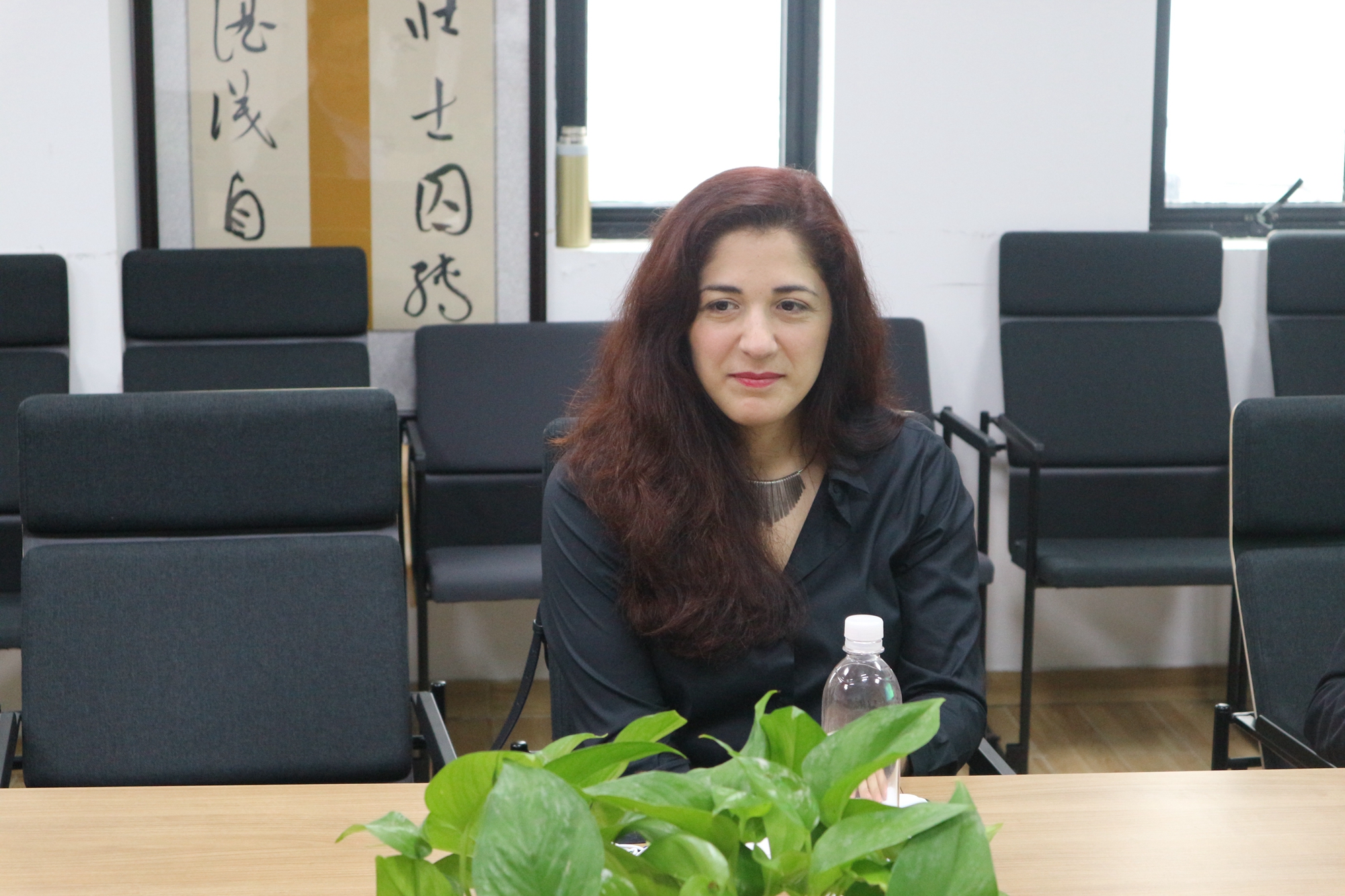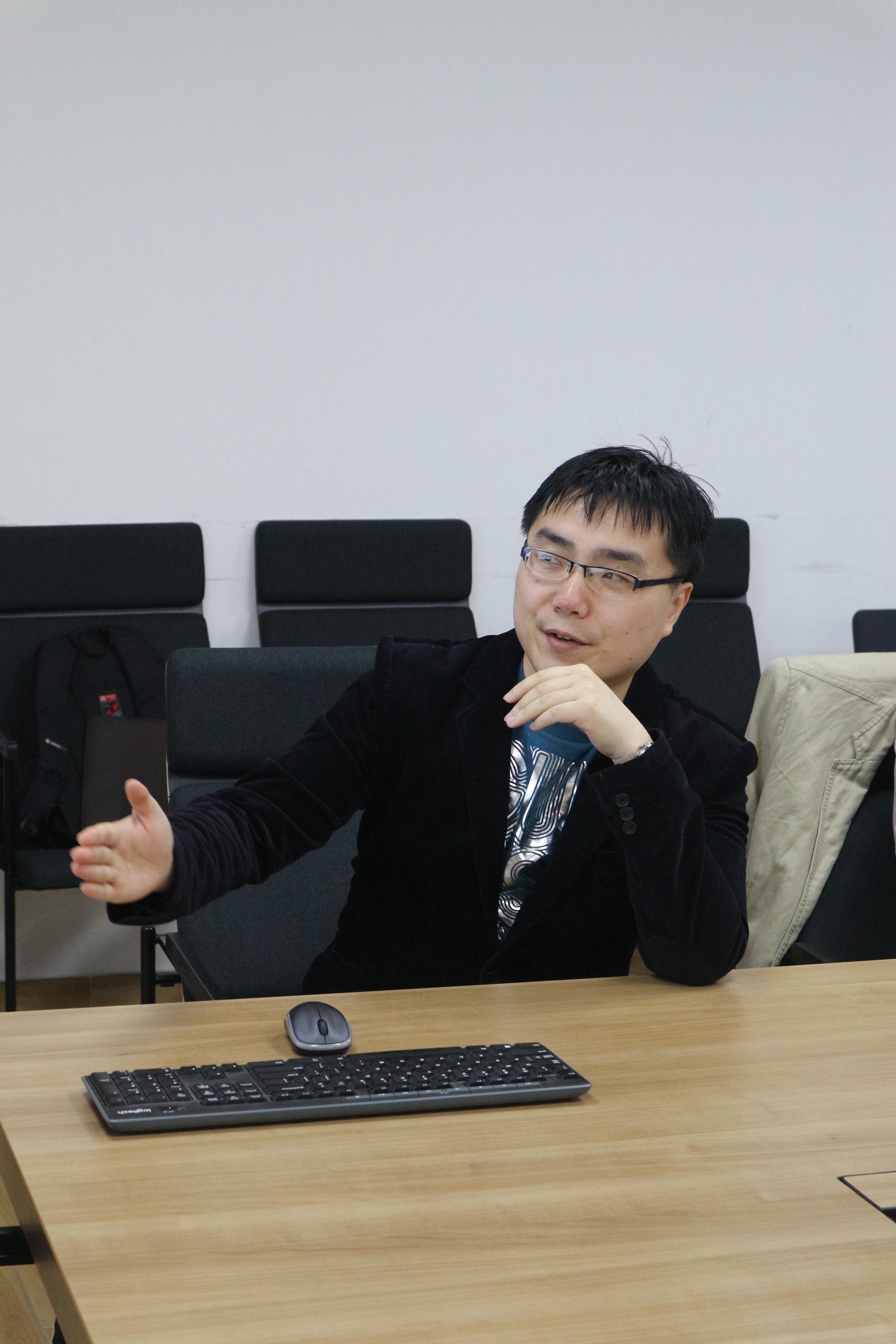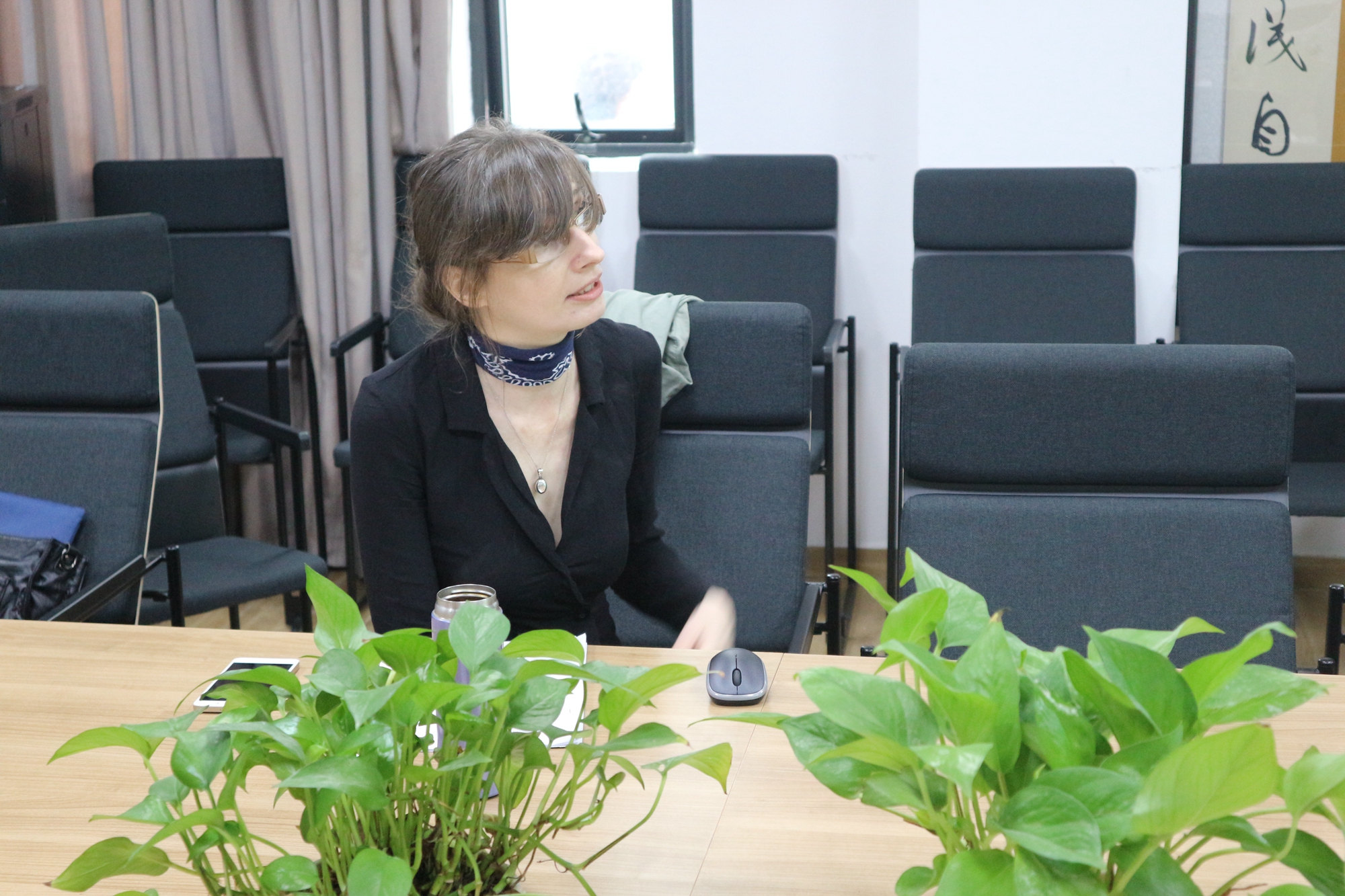
The 16th “Siyuan” Doctoral Academic Forum, Department of Philosophy
On the morning of April 19, 2019, the 16th “Siyuan” Doctoral Academic Forum of the Department of Philosophy, ECNU was successfully held in Room 2102. Prof. Wu Guanjun from the Department of Political Science, ECNU was invited to comment on the three presented papers. Professor Liu Liangjian and the other students participated in this forum.

Barbara Aniela Bonar presents her paper on the “Dialectic of desire in the Zhuangzi- A psychoanalytic interpretation”. She focuses on the problem of desire in the Zhuangzi from Jacques Lacan’s psychoanalytic perspective and analyzes Zhuangzi’s subject in the dialectical movement of desire, that is to say, in its relation to the Other. Bonar offers an “alternative” reading that Zhuangzi’s subject doesn’t free from desire despite his own counterpart claim about empty mind.

Dimitra Amarantidou’s presents “You Cannot Say the Same Thing Twice: Change and Irony in the Analects”. She argues that Confucius inevitably adopts an ironic tone when faced with the impossible task of teaching and offering counsel in the midst of change, i.e. in the maintenance for remaining relevant and responding to concrete situations. However, his irony is more than a mere linguistic trope, a rhetorical device, or an indirect teaching method. It is not the linguistic representation of changing states of affairs, but the manifestation of changing reality in linguistic terms. In this sense, Confucius does not merely employ irony, but embodies it. Irony is not an element of his philosophical discourse, but that discourse itself: the only linguistic environment and thinking mode fit to attune with changing circumstances, and also the only remedy against trivialization, intellectual arrogance, and dogmatism.

The third speaker is Yu Shengzhou, whose topic is “On Lacanian Transgression-Beyond Pleasure-Reality Couplet and the Limitation of Law”. His main concern is an open but affirmative attitude towards common sense: how to examine and surmount it on the premise of an overall apprehension? Thus, in his paper he casts doubt upon pleasure and reality principles which shroud our socio-psychological ambience perpetually, for each of them is a captive in habitual life albeit we are ignorant of them. Following this thread, it’s of importance to divide the imposition of moral law buttressed by the incest prohibition (the unapproachable Good) from drawing on a particular interest (the good) striving for a particular purpose from everyone. The method he adopts to overcome one and the other should be discriminated as well: the former is a principle as an extension and interior limitation compared to the latter. Beyond the couplet of the pleasure-reality principle designates the untouchable and unspeakable Thing (sublimation) which exceeds any so-called satisfaction, opposing, identifying as well as overthrowing the reality. The law is the last limitation for being a subject: without law, there will be no jouissance to transgress; likely, without transgression, there will be no guilt and desire to envisage.
Prof. Wu provides beneficial suggestions for these three speakers. Firstly, Prof. Wu raises questions to Bonar:“How to understand Zhuangzi’s concept of wudai(无待), if we read Zhuangzi’s subject in Lacanian dialectics of desire? Does wudai presuppose a drastic cut from any emotions and desires? In brief, is Lacanian lack different from that kind of understanding?” Bonar responds, she tries to explicate that from psychoanalytic perspective that kind of absolute and drastic cut is not possible, because if the concept of desire is built on the lack and relevant to the Other which does not emerge under any self-reflection, thus any absolute cut is not possible. The desire linkage also can be read on the unconscious level. Secondly, when he comments on Amarantidou’s article, Prof. Wu says: “Your paper shows a different way to approach Confucius who as a thinker which embodies irony; However, it is doubtful that in Confucian text whether it is legitimate to use irony as an ontological concept.” Amarantidou replies: “Confucius goes back and picks up what he wants of the past and recreates the past to develop ren on the one side. On the other side, he himself is quite an ideal moral model, he does not require others to do exactly the same thing as him but manifests them the attitude. Thereby, he advocates an ‘empty model’ that should always be combined with different individuals’ experiences. He redefined the morality in a complete term within individual experience. Both sides require openness and irony spirit. Finally, Prof. Wu suggests Yu Shengzhou to pay more attention to Bataille since Foucault’s transgression is employed.

 学校主页
学校主页 校内链接
校内链接 校外链接
校外链接 校内邮箱
校内邮箱




